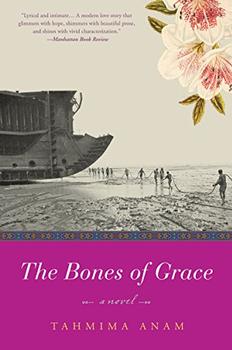Summary | Excerpt | Reviews | Beyond the Book | Readalikes | Genres & Themes | Author Bio

You were ahead of yourself, Elijah, standing in that intersection before you were meant to.
The Preludes
The first words I ever said to you were: 'When I was nine years old, I found out I was adopted.' And you replied: 'Aristotle was an orphan.' And I said: 'So was the Prophet Muhammad.' That evening, the music and the heat of late summer had made me recall the day my parents had finally confessed the thing that I had, even as a small child, always suspected. I remembered that after my ninth birthday party, when the guests had gone home and what remained was the smell of fried chicken and torn corners of wrapping paper and the scatter of fallen potato chips, my parents told me that they had adopted me two years after they had married and fifteen years after the war. I hardly ever thought about that day, but, on the evening we met, I recalled it clearly: my father had built a piñata that had emptied its candy onto the lawn, and a boy from my school had taken the piñata stick and chased the other boys into a shady corner of the garden where the cobwebs were as thick as books. I remembered being sandwiched between my parents as they narrated the story, remembered each holding one of my hands and telling me about wanting so much for a baby and the miracle of finding me, remembered that I developed the sudden urge to vomit, that my vomit was candy-orange, and remembered especially the colour, because in those days there was no flush in the evening and I'd had to pour six mugfuls of water from the bucket into the commode to make it go away. It came back to me in a flood on that hot night in Cambridge that sat heavy on all of our shoulders, late summer and the semester about to begin, the campus sparse. I was preoccupied with the final preparations for my trip to find a complete skeleton of the ancient whale Ambulocetus natans, and my memories mingled with thoughts of packing away my apartment and the journey I was about to embark on, imagining the dig, the moment of discovery, the possible unveiling of a fossil that had already changed the way we looked at the relationship between the land and the sea, and in this interlude, between the memory and the anticipation, a crack appeared, a pause in which everything slowed down, an in-between moment that was neither here nor there – and into that crack fell you: a man with piano hands and the smell of cold weather on his collar.
I had gone, as you of course know, to a concert at Sanders Theatre. I sometimes spent evenings in that wood-panelled auditorium, and on that night, on the eve of my departure, I allowed myself this indulgence as a coda to my seven years in America, immersing myself, as I was often wont to do, in sounds that would always resonate, despite, or perhaps because of, their unfamiliarity. I usually forgot the music, except once, when Yo-Yo Ma played the Bach Cello Suites. The event was more of an interview than a concert so he only played for a few minutes at the end, but it was brief and magical, and the only time I had wished to share the experience with someone else.
So it was my last night, and my last concert. I found, when I arrived, that it would be the Shostakovich Preludes. I had heard of Shostakovich, but other than the name I didn't know anything about the music. I saw a grand piano on stage, then the lights went down and I was surprised when a slight woman emerged from behind the curtain. She was older, possibly in her sixties, and she wore a long skirt and had her hair tied into a grey knot that hung low on her neck. She began to play short pieces of perhaps five minutes each. I found the music pleasant but unexciting. It would begin on a romantic note, but somewhere in the middle it would become distant, almost intellectual. I couldn't connect. At one point I became aware of a man to my left: of you, Elijah, of the way you tapped your hand against your knee, the frayed material of your jeans where your fingers rested, your sandalled feet and the canvas bag that sat under your chair.
Excerpted from The Bones of Grace by Tahmima Anam. Copyright © 2016 by Tahmima Anam. Excerpted by permission of Harper. All rights reserved. No part of this excerpt may be reproduced or reprinted without permission in writing from the publisher.
Idealism increases in direct proportion to one's distance from the problem.
Click Here to find out who said this, as well as discovering other famous literary quotes!
Your guide toexceptional books
BookBrowse seeks out and recommends the best in contemporary fiction and nonfiction—books that not only engage and entertain but also deepen our understanding of ourselves and the world around us.